SUMMARY
This is AI generated summarization, which may have errors. For context, always refer to the full article.
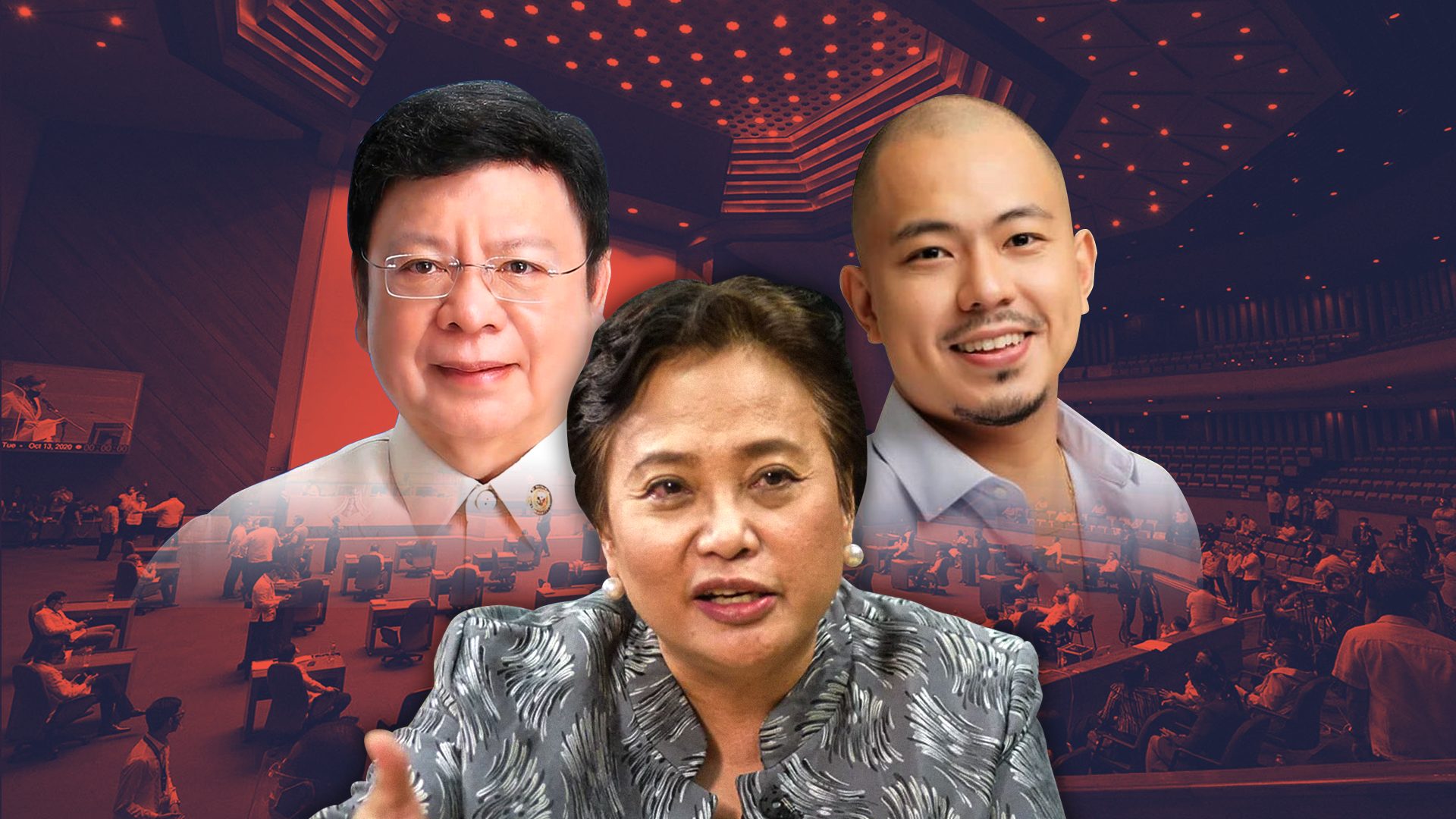
MANILA, Philippines – Picture this: election day is over, the votes have been counted, and the public has decided which leaders deserve a clear mandate, and which ones should be denied an elective seat in government.
But entry in the House of Representatives becomes more and more a free-for-all if politicians play their cards right. A weak spot in the Philippines’ party-list law basically allows an aspiring lawmaker to be part of the chamber even if their name was not originally among the top nominees of a party-list organization, or was not even among the nominees.
At least two poll watchdogs believe this practice is the latest attempt by interest groups to abuse the system.
Beyond the deadline, beyond elections
For the 2022 elections, the poll body set November 15, 2021, as the deadline for the substitution of party-list nominees who withdrew from the race, based on Comelec Resolution No. 10717. Beyond this date, substitutions shall only be allowed if the “list of nominees originally submitted has been exhausted due to death and/or incapacity of the nominees.”
The deadline set by the Comelec, however, would turn out to be evadable.
Based on Comelec confirmations and statements of politicians, there have been at least three party-list groups which made changes to their list of nominees after the substitution deadline, two of which were already approved by the commission.
They are:
Here’s the timeline at a glance:
- October 1 to 8, 2021: The Comelec held a week-long filing of certificates of candidacy and nomination for political aspirants and party-list groups.
- November 15, 2021: The substitution deadline lapsed.
- April 29, 2022: Sagip submitted its revised list of nominees to the Comelec.
- May 9, 2022: The Philippines held its national elections.
- May 25, 2022: The Comelec, sitting as NBOC, completed the canvassing of votes for the party-list race. The Comelec approved the substitution bids of Sagip.
- May 26, 2022: The Comelec proclaimed the winning party-list groups. Agimat’s Bryan Revilla disclosed he is now the first nominee of the group after the first four nominees backed out.
- June 14, 2022: P3PWD submitted to the Comelec its new set of nominees.
- June 15, 2022: The Comelec approved the substitution bids of P3PWD.
- June 17, 2022: P3PWD finished complying with requirement to publish the new list of nominees in two national newspapers, the Comelec said.
Rappler tried to obtain from the Comelec a full list of party-list groups that submitted withdrawal and substitution papers after the said deadline, as well as copies of the said documents, but the Office of the Executive Director denied our request. In a June 17 letter, the commission said the request was “not necessary” and “failed to satisfy the general data privacy principle of transparency prescribed under Section 11…of the Data Privacy Act of 2012.”
We do know, however, from documents seen by Rappler, that P3PWD’s original nominees cited a range of personal reasons in their resignation letters. None of them died or were incapacitated.
Rappler reached out to Guanzon, Marcoleta, and Revilla, but they have yet to reply. This article will be updated once they do.
Comelec’s reason
In justifying its decision to allow the changes in the groups’ list of nominees beyond the deadline, the Comelec cited provisions of the Republic Act 7941 or the Party-List System Act.
“Unless there is a clarificatory amendment to RA 7941, particularly on Sections 8 and 16, this would be the rule to be followed by the commission in similar cases,” Comelec spokesman Rex Laudiangco said on June 15.
Section 8 of RA 7941 says that a party-list group shall submit its list of nominees “not later than 45 days before the election,” but adds that a change of names is allowed in cases where the nominee withdraws in writing.
Section 16, meanwhile, allows groups to “submit additional nominees” if the original list is exhausted.
Party-list organizations are allowed to submit up to five names when they file for accreditation for the polls.
“This is not the first time that this issue happened, with ‘all’ nominees withdrawing the acceptance of their nominations after the close of polls. In all instances, the ruling of the commission had been consistent,” Laudiangco explained, citing supposed cases of Anak Mindanao, Acts OFW, and Duterte Youth in past polls.

Substitution method in the spotlight
Regardless of which group set the precedent, Duterte Youth’s case, perhaps, was the first high-profile substitution bid in the party-list sector. In 2019, National Youth Commission Chairman Ronald Cardema tried to replace his wife Ducielle as the group’s first nominee in a Comelec filing a day before the May 13 elections.
A month later, in June, the Comelec granted Duterte Youth’s bid to change its nominee lineup, but Guanzon, who was then poll commissioner, dissented all by herself, saying Cardema’s move was an “assault to democratic processes.”
Cardema then faced a legal challenge, and in August, the Comelec division which Guanzon was part of denied his substitution bid. The feisty Guanzon wrote that the substitution of five nominees on the eve of the polls had the “clear intent of depriving the electorate the opportunity to be informed and to examine the qualifications and credentials of the nominees.”
Wife Ducielle was eventually proclaimed congresswoman after the Comelec approved a new list of Duterte Youth nominees, which put her name back on top.
Foggy explanations in the past
In past statements before the post-election substitution brouhaha blew up, it was apparent that the Comelec was unable to thoroughly explain the rules governing substitutions of party-list groups beyond the deadline it set.
In February, former Metropolitan Manila Development Authority (MMDA) assistant secretary Celine Pialago said that she was seeking to be a substitute nominee of Frontliners ang Bida, after the Comelec barred her original group, Malasakit Movement, from participating in the 2022 party-list election.
Rappler at the time asked then-Comelec spokesman James Jimenez whether Pialago and her new party-list group were covered by the substitution deadline imposed under Comelec Resolution No. 10717. His reply was, “They are not exempted.”
On May 15, Rappler also asked current Comelec spokesman Rex Laudiangco about rules on substitution in the wake of Guanzon’s posturing on social media as incoming congresswoman despite not being a listed nominee of P3PWD. Laudiangco used Comelec Resolution No. 10717 in his explanation, not RA 7941.
“It’s not as simple as the rules have stated. For [voluntary] withdrawal, we have a period. The one which does not have a period beyond November 15 [is withdrawal] due to death or incapacity. In both instances, there will be determination of validity and just cause. This will be the subject of a hearing, to see if there is a valid ground to grant the substitution,” Laudiangco had said in general terms.
A can of worms
Election watchdog Legal Network for Truthful Elections (Lente) acknowledged that the substitution option has been abused more and more frequently by political figures, especially in the 2022 election cycle. But it stopped short of calling a “loophole” the provisions in the Party-List Act that allow alteration in the groups’ list of nominees at any point.
“The votes received by a party-list group will be wasted if we will not allow them to submit a new list of nominees,” Lente executive director Ona Caritos told Rappler on Monday, June 20. “It is not a loophole per se, it is a provision being used right now by personalities to enter Congress.”
For Kontra Daya, a group that has done numerous research on the party list, only the rich and the powerful stand to gain from the substitution attempts after the Comelec’s imposed deadline and post-elections.
“[P]arty-list groups can put placeholders as their party-list nominees, and then just substitute them with the ‘real’ nominees if and when they get seats in the House of Representatives,” Kontra Daya convenor Danilo Arao told Rappler on Monday.
“This would make it harder for election watchdogs like us to study the nature and orientation of all party-list groups as they can keep their real nominees under wraps. For example, groups identified with political clans and big businesses can be hidden by putting seemingly ‘harmless’ nominees during the campaign period as the familiar surnames will emerge only when their groups win,” he added.
A story by the Philippine Center for Investigative Journalism in February said that, out of 177 Comelec-accredited party-list groups, 70 had nominees “connected to political clans or incumbent local or national elected officials.” A similar research by Kontra Daya released in March put the number of party-list groups with ties to political clans and big business at 122.
The party list is a system of proportional representation introduced in the 1987 Constitution, but the first ever election using it was conducted only in 1998. In between, the president was allowed to appoint sectoral representatives, with the view that they would strengthen their sectors’ voters’ base so they could slug it out with political and regional parties in the elections. The Supreme Court upheld this nature of the party list in a 2013 ruling, setting aside earlier interpretations that the system was reserved for the marginalized and that nominees needed to represent the marginalized.
Call for amendments
Kontra Daya said that in the long term, Congress should initiate amendments to the party-list law.
A cursory search, however, shows that multiple bills seeking to amend RA 7941 in past Congresses shared the same fate: they all languished.
Lente floated the possibility of stringent requirements for party-list nominees to protect the system from further hijacking.
“One amendment we can look at is, before someone becomes the nominee, he or she should be a member of the party-list group for at least six months,” Caritos said.
For now, Kontra Daya’s Arao said the Comelec should make an effort to be more transparent about changes in groups’ list of nominees.
“The Comelec should disclose to the public all winning party-list groups that filed for withdrawals and substitutions. The public deserves to know if there are more than three that have done so,” he said.
The ball is in the Comelec’s court. When the poll body on May 25 approved Marcoleta’s substitution bid, which he filed on April 29, the Comelec disclosed it to the media only on June 17.
Asked why such a belated announcement, Comelec’s Laudiangco said, “If you will notice, there is no requirement for an announcement in all party-list changes.”
“What the law requires is the publication of new list of nominees in two newspapers of nationwide general circulation, and that is already full compliance with the requirements of law,” he added.
Laudiangco on Tuesday, June 21, said P3PWD already complied with the publication requirement, while he would have to still check whether Sagip did the same. – Rappler.com
Add a comment
How does this make you feel?
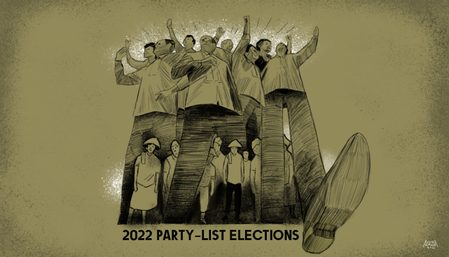


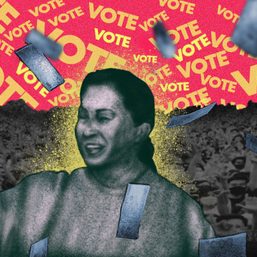

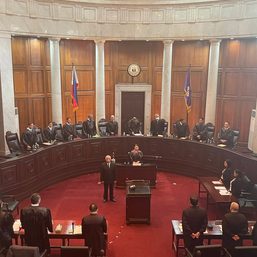
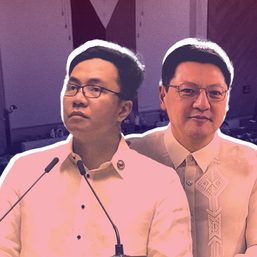
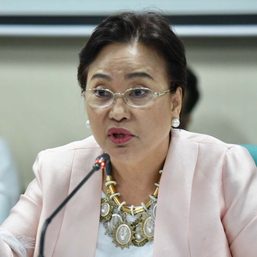
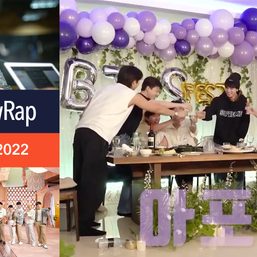





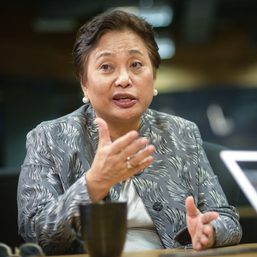
![[OPINION] Fiscal firestorm and the confident crusaders for transparency](https://www.rappler.com/tachyon/2023/10/fiscal-firestorm-confident-crusaers-transparency-october-3-2023.jpg?resize=257%2C257&crop_strategy=attention)
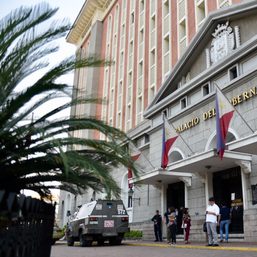
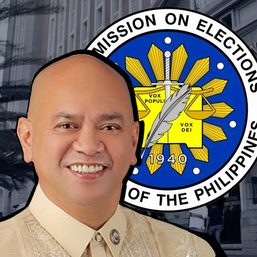
There are no comments yet. Add your comment to start the conversation.